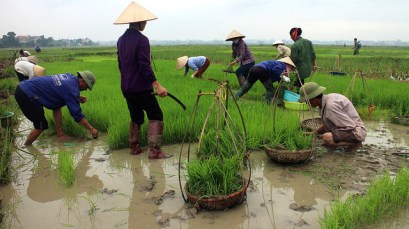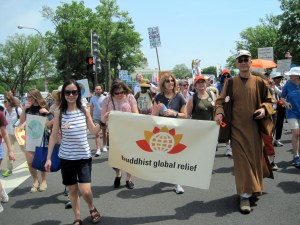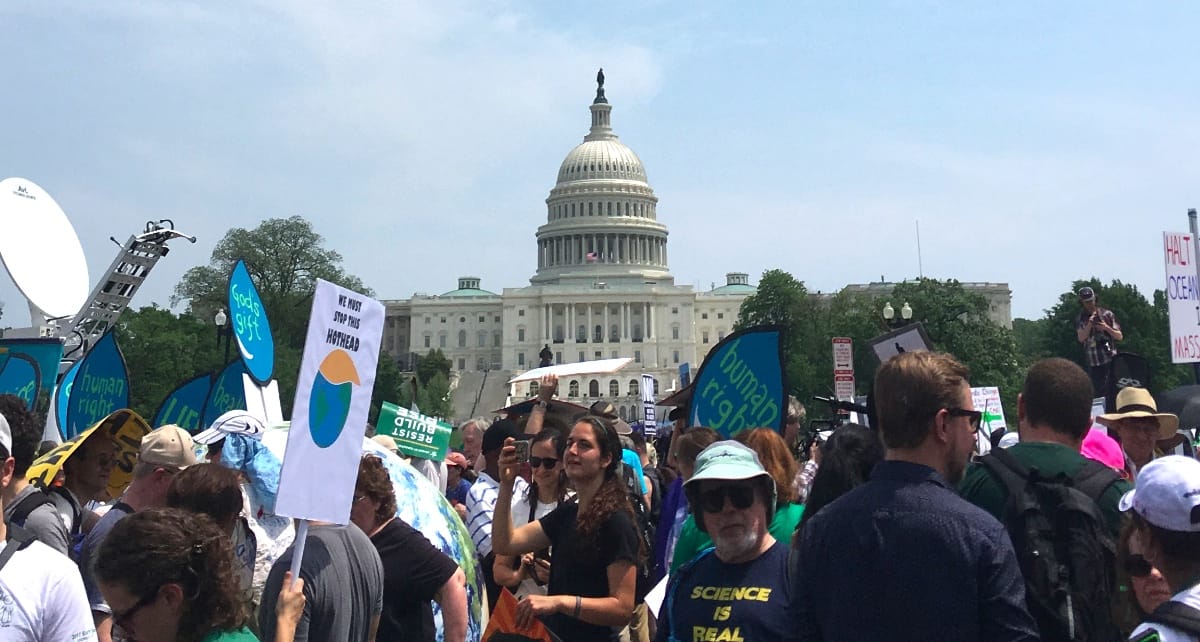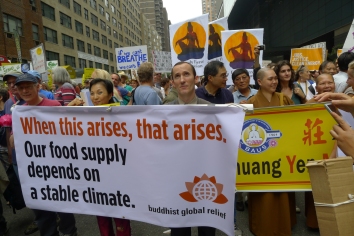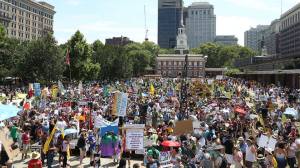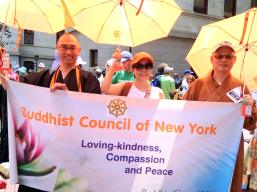Ven. Bhikkhu Bodhi
Forests are the lungs of the world. Their trees suck up carbon dioxide from the atmosphere and breathe out oxygen, thereby controlling carbon emissions and helping to maintain a viable planet. They serve as homes to countless varieties of animals, birds, insects, and plants, many with rare medicinal properties. In tropical countries the forests provide a blanket of coolness that protects against the heat of the day. And for centuries the forests have given shelter to Buddhist monks, who resort to them to pursue their quest for peace of mind, wisdom, and the ultimate goal of Buddhist practice, nibbāna.
Yet all around the world the forests are in danger. With the growth of global population and the need to expand agricultural production, the world’s forest cover has shrunk drastically. In almost every continent, trees are being cut down at alarming rates by loggers, land developers, and large agricultural firms in order to make room for mono-culture plantations and industrial-scale farms.
Deforestation has been occurring especially rapidly in Cambodia. According to the human rights organization Licadho, between 2000 and 2013 14.4 percent of Cambodia’s jungle disappeared. Over 12 percent of the trees were cut in protected areas. The loss of forest cover portends danger for people, animals, and the climate. As in so many poor countries, profit takes precedence even over survival, as people pursuing short-term aims recklessly undermine the prerequisites for our long-term future.
But the forests have a determined corps of guardians who have risen to their defense: Buddhist monks. The German news agency DW recently posted an article about an organization of Cambodian monks—the Independent Monk Network for Social Justice—that is battling to save the country’s forests. The organization’s leader, Venerable But Buntenh, explained: “No one has told me that I should go out there to protect the forest, but for me it was a logical thing to do. I am doing all I can to save it. I plant new trees, I help the people who live from the forest, I am reminding the government of the promises they’ve made.” A younger monk named Horn Sophanny, who was inspired by Buntenh to join the movement, states: “It is our job to lead society to a better place. We are the symbol of compassion. The pagodas are the roots of our knowledge.”
The monks hold workshops at which they teach local people how to use social media to protect themselves and the jungles near their homes. They receive staunch support from the villagers who live near the forests but have faced strong opposition from the authorities. They have been spied on, threatened, and sued; their workshops are interrupted by village chieftains; their temples have been raided by the police. Even the supreme patriarch of the Buddhist order has criticized them, saying that monks shouldn’t be involved in protests.
But the monks remain undeterred in their determination to protect the forests. Buntenh says: “I don’t think I’m a good monk, because I am mean to the police and to the military. But I’m ready to give everything for my people and the forest. If I have to give my life for it today or tomorrow, then I’m willing to make that sacrifice.”


